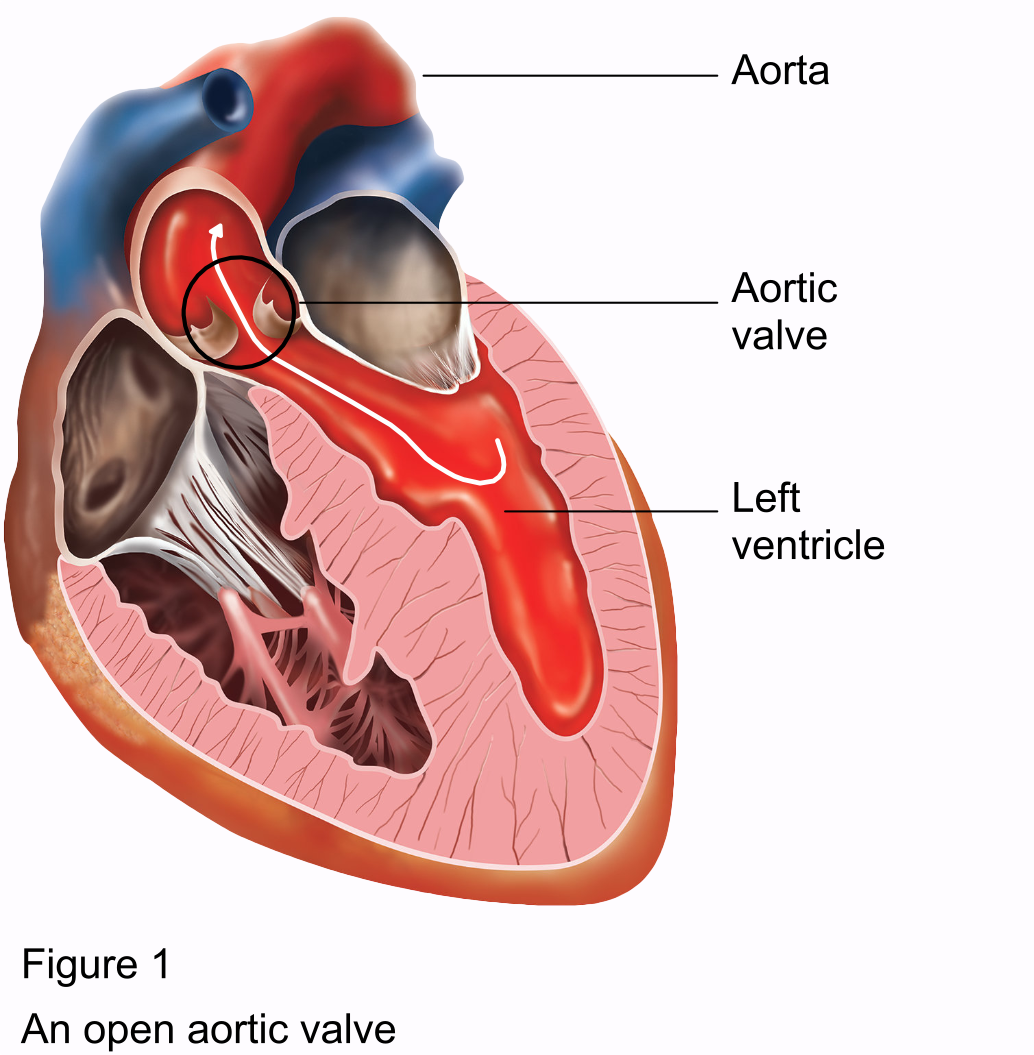Aortic Valve Replacement
Issued September 2018
Expires end of December 2019
This document will give you information about an aortic valve replacement. If you have any questions, you should ask your GP or other relevant health professional.
What is aortic valve disease?
Your aortic valve controls the flow of blood from your heart (see figure 1). Aortic valve disease is where the valve does not open properly or is narrowed, or does not close properly. If your valve does not open properly or is narrowed, you may get dizzy, breathless or have chest pain. If your valve does not close properly, it can make you feel breathless.

What are the benefits of surgery?
You should get improved breathing, less chest pain and more energy. You should live longer with surgery.
Are there any alternatives to surgery?
Medications such as diuretics, ACE-inhibitors and digoxin are the main alternatives to surgery. You may be able to have an aortic valve replaced through a catheter in an artery in your groin.
What does the operation involve?
The operation is performed under a general anaesthetic and usually takes about two to three hours.
Your surgeon will make a cut down the front of your chest, through your breastbone. You will be connected to a heart-lung machine, which allows your heart to be still while your surgeon replaces the valve. The two main types of replacement valve are mechanical or tissue valves.
What complications can happen?
1. General complications
- Pain
- Bleeding
- Unsightly scarring
- Infection of the surgical site (wound)
- Blood clots
2. Specific complications
- Stroke
- Infection of the replacement valve
- Heart attack
- Death
How soon will I recover?
After the operation you will be transferred to the cardiac intensive-care unit or high-dependency unit for a few days, and then to the ward. You should be able to go home after 7 to 10 days. The healthcare team will tell you when you can return to normal activities.
Regular exercise should help you to return to normal activities as soon as possible. Before you start exercising, ask the healthcare team or your GP for advice.
Most people make a good recovery, with no more shortness of breath or chest pain. You may have more energy after you recover.
Summary
Aortic valve disease can cause pain, shortness of breath and eventually death. Aortic valve replacement can relieve your pain, improve your energy levels and may help you to live longer.
Acknowledgements
Author: Prof. Julian Smith MBMS MSurgEd FRACS FACS FCSANZ FAICD
Illustrations: Medical Illustration Copyright © Medical-Artist.com
This document is intended for information purposes only and should not replace advice that your relevant health professional would give you.
